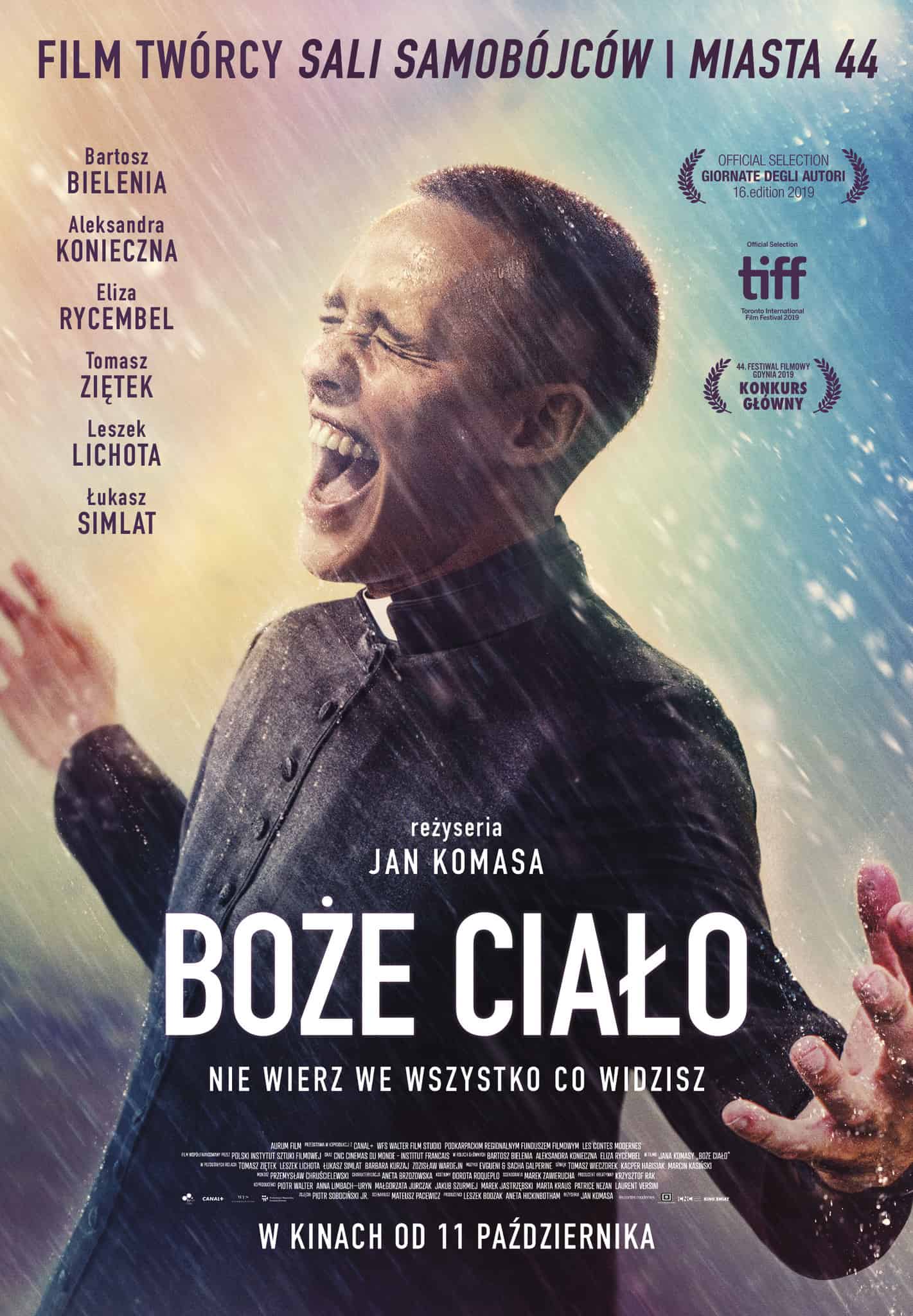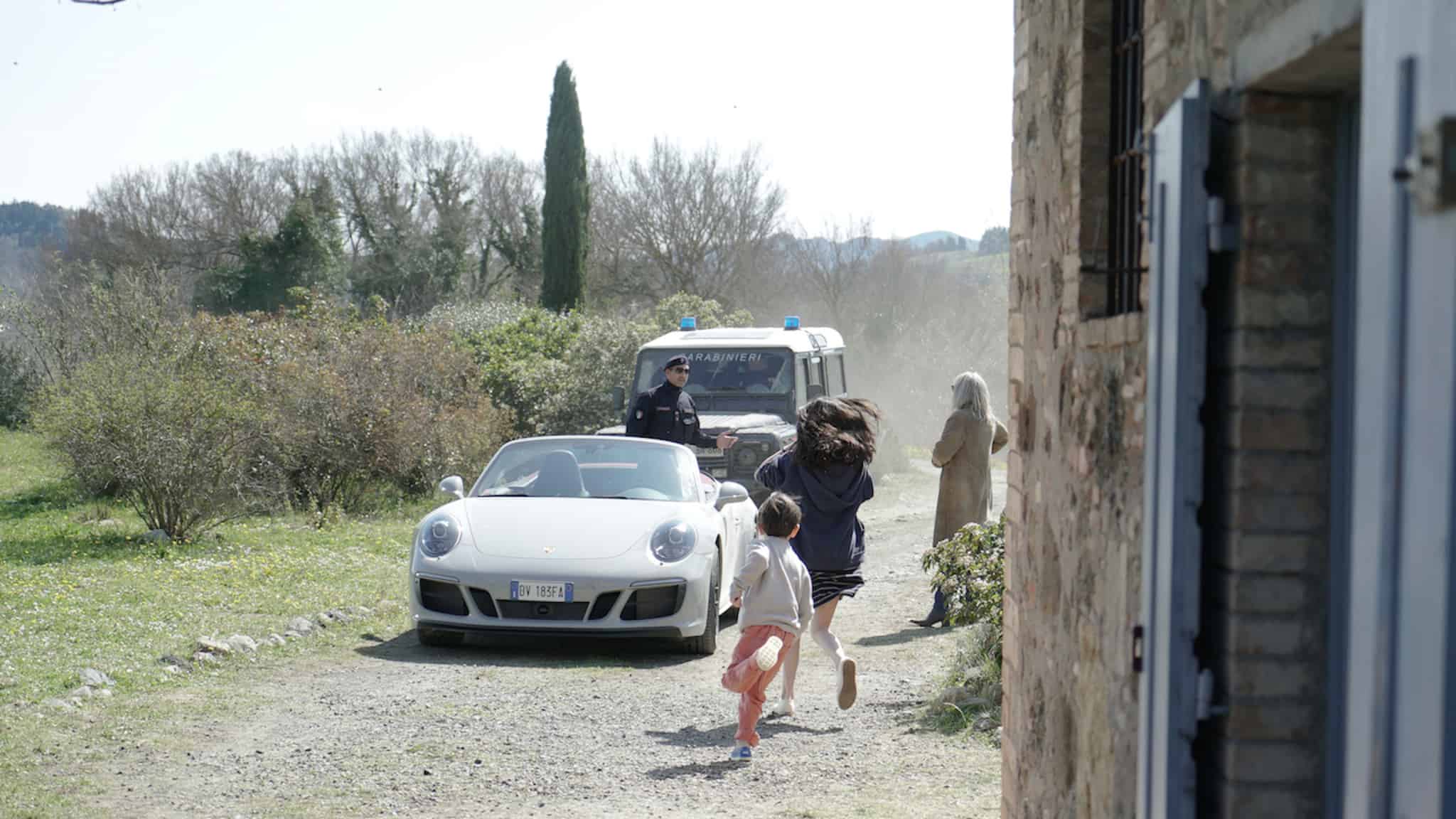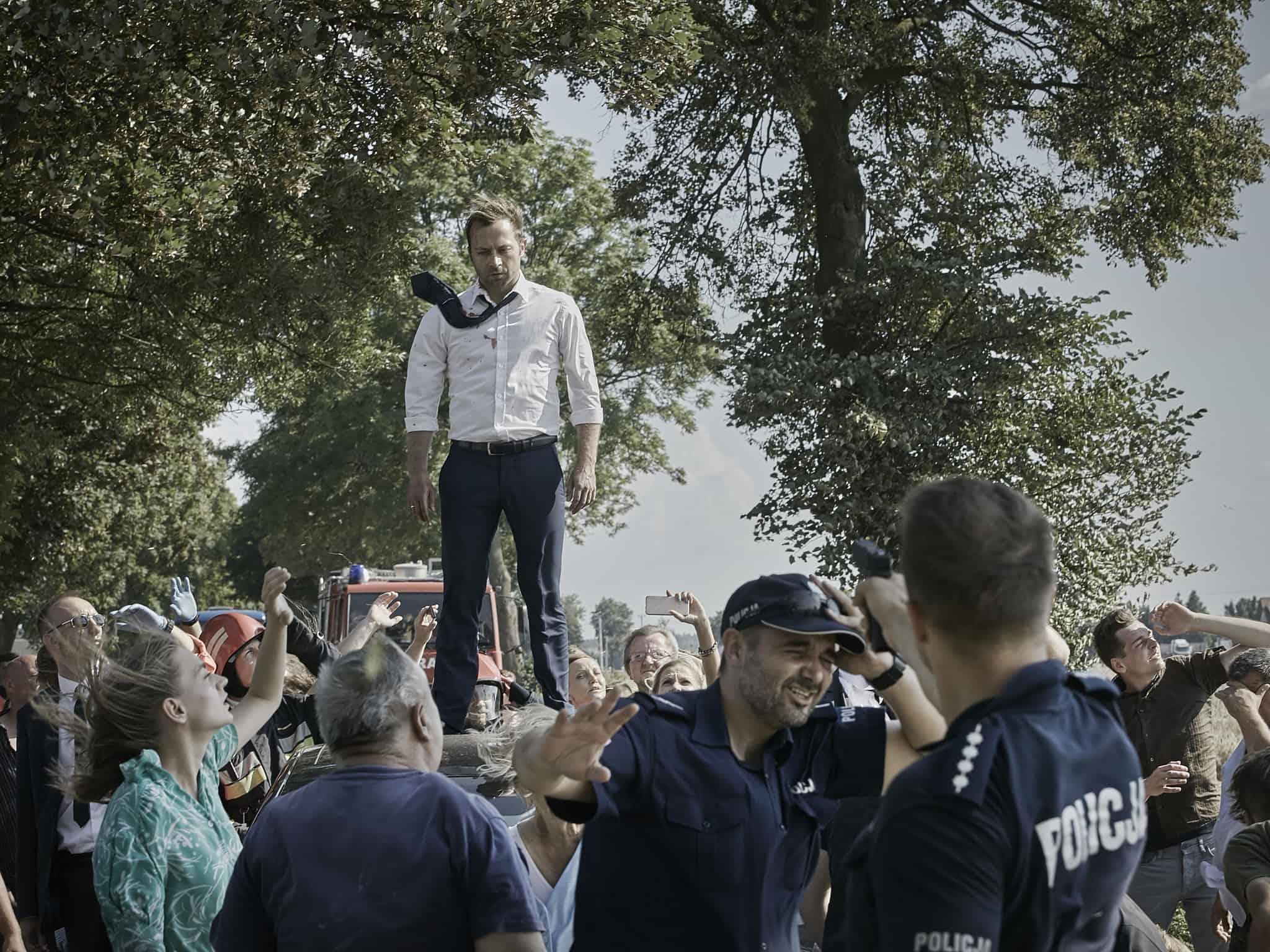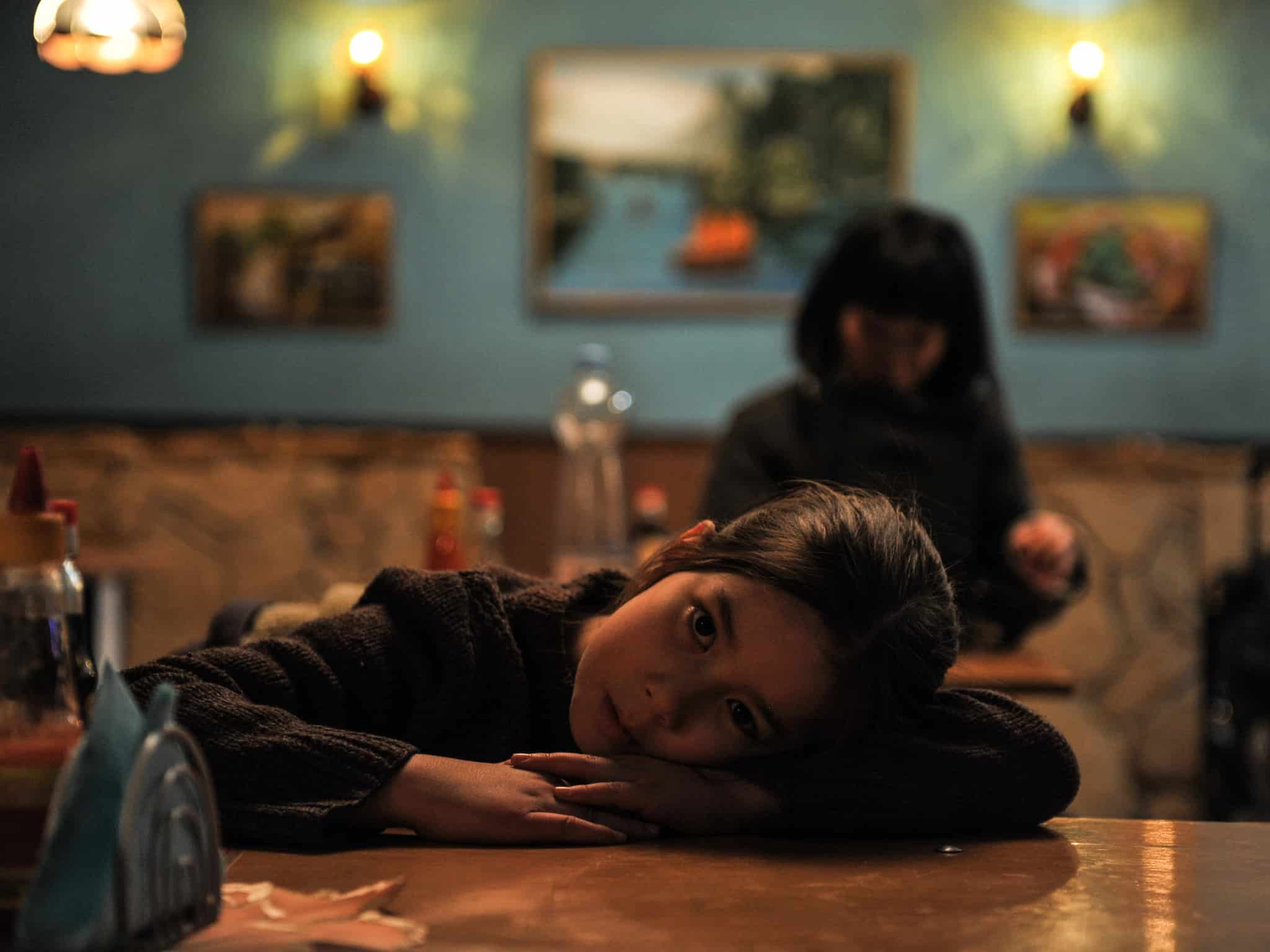The 13. edition of the Polish Film Festival “Vistula” starts again this year. It’s the festival that compels the Russian audience (and others) to watch the latest gems of the Polish cinema. Along with its mirror festival “Sputnik”, it helps bridge the gap between Poles and Russians, and hopefully encourages better mutual understanding between the citizens of both nations. Here’s our selection of this year’s recommended features screened during the Vistula Film Festival.
The festival program is divided into several sections, the main feature film competition being the most prestigious one. Since the results were announced already, it’s worth looking first at the titles which swept this year’s awards.
Corpus Christi (Boże Ciało), dir. Jan Komasa
Probably the most popular Polish film of 2019 that was screened at international film festivals, scored Oscar nomination and high accolades from viewers all around the world ranging from the United States to South Korea. The film’s story is both universal and firmly rooted in reality and problems of Poland. Upon his release from a juvenile detention center, the main character (played by Bartosz Bielenia – a breakthrough star and revelation) ends up in a small town. He makes an impulsive decision and pretends to be a priest. His unconventional way of being captures the hearts and minds of the local, small yet deeply fractured, community.
Although the film steers clear of any direct references to the social and political situation in the country, the creators manage to encapsulate some of the most pressing issues plaguing today’s society in Poland. The sensitive subject of the Christian religion was approached in a provocative and revisionist, not iconoclastic, manner.
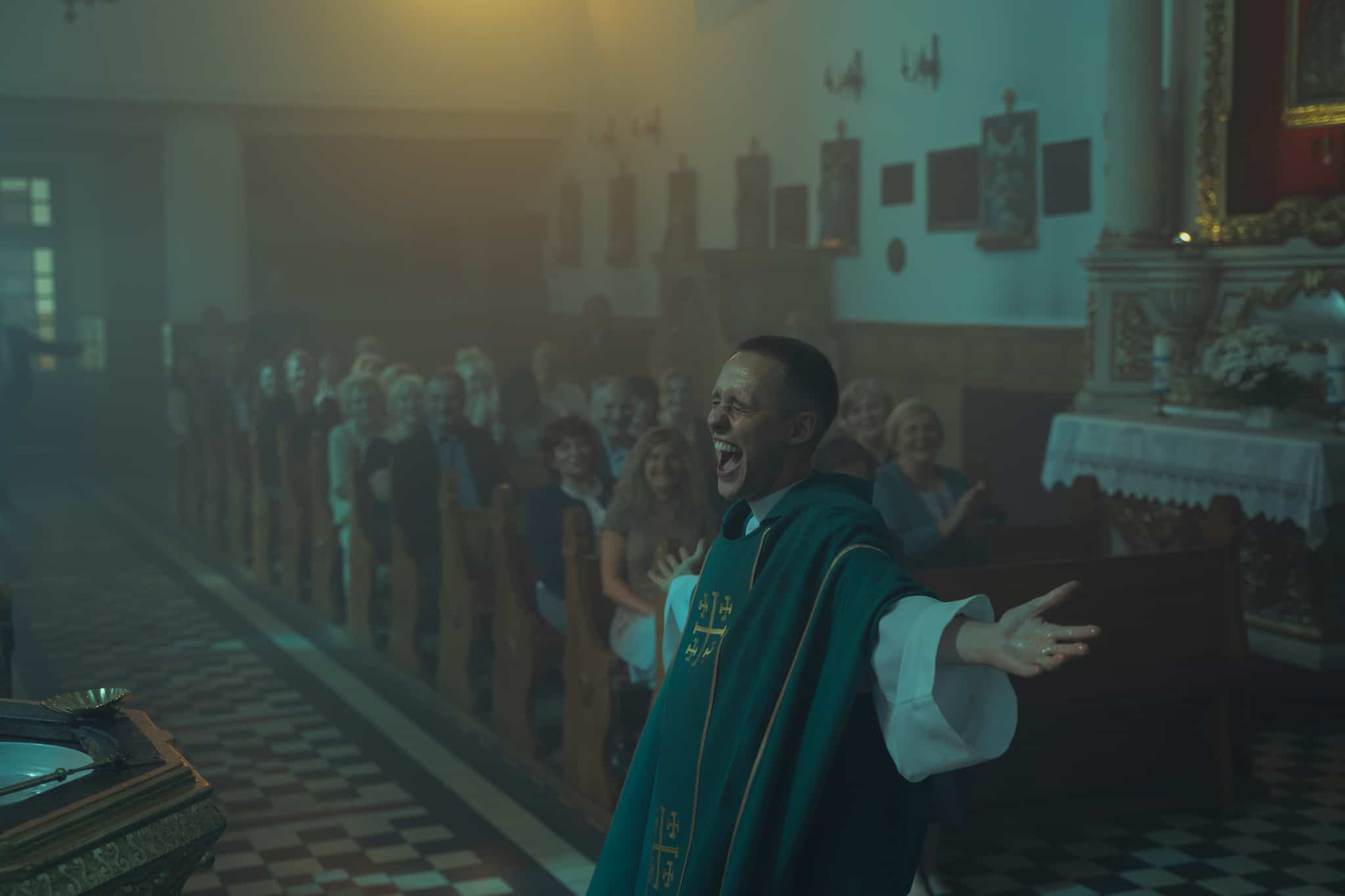
Dolce Fine Giornata (Słodki koniec dnia), dir. Jacek Borcuch
At the center of the film is Krystyna Janda, a phenomenal actress, who plays the role of a fictional Jewish poet and Nobel prize laureate living in Italy. As she accepts another literary award in a small town, she makes a speech which many might view as highly controversial.
The film was created by Jacek Borcuch in collaboration with Szczepan Twardoch, a famous writer. Together, they attempt to make a unique diagnosis of modern Western Europe consumed by the giant identity crisis even though it’s seemingly overflowing with wealth. Struggle with the colonial heritage, influx of immigrants, fundamentalist terrorism – all these elements disrupt the sense of security of its citizens. Meanwhile, the poet played by Janda is an outsider. Although she distances herself from this world, she still can’t reject it in its entirety. It is her origin that makes her appreciate the cultural legacy of Europe. Though far from flawless, Borcuch’s poetic and evocative film represents a deeply personal and genuinely caring meditation on the current condition of the West.
Supernova, dir. Bartosz Kruhlik
One of the most thrilling debuts in the recent history of Polish cinema – Bartosz Kruhlik’s long-awaited feature made after his series of award-winning short films. Despite a shoestring budget and the lack of star-studded cast, Supernova turned out to be a well-made film based on the meticulous script, excellent craft and, last but not least, original concept. Preserving the unity of time and action, the film tells the story of a car accident somewhere in the middle of nowhere. There are people from various social backgrounds embroiled in the incident, while the ongoing investigation may shed light on some secrets. Especially the perpetrator of an accident has a lot to lose – a politician running again for the election. In his mostly “down-to-earth” documentary-like style of filmmaking, there are few moments where Kruhlik decides to break away from this convention. The result is both gripping and astounding, delivering the opportunity for an in-depth reflection on the divides in the Polish society.
Monument, dir. Jagoda Szelc
Although it’s only her second film, Jagoda Szelc is already considered a showstopping figure of the Polish cinematography. Her unprecedented and uncompromising style of filmmaking derives from selected subjects, adopted aesthetic, even the way she works on set. Monument is the graduation film of the acting students enrolled in the Łódź Film School. Therefore, it was essential Szelc provided them with guidance and allow them to display the full spectrum of their individual and collective abilities. Narrative itself revolves around the group of students leaving for a remote internship in hotel management that soon turns into the phantasmagoric nightmare. At the same time, the film offers a meta-analysis of the internship as such along with its inherently oppressive and violent nature. Oneiric mirage of the film’s style draws on the experience of visual art (the film features sculptures by Olaf Brzeski), leading up to the climax in the form of an amazing, cathartic quasi-pagan ritual.
Worth mentioning are also two films screened as part of the different programme sections that offer less straightforward additions to the Polish cinema.
The Taste of Pho (Smak Pho), dir. Mariko Bobrik
The story of a Vietnamese man working at a restaurant and raising his 10-year-old daughter. As she is growing up, the girl becomes increasingly torn between her Polish and Vietnamese identity, an inevitable point of conflict between her and her father. This subdued and heartwarming film is a rare example of the feature concentrating around the problems faced by the Vietnamese minority living in and near Warsaw that still lacks proper representation in mainstream media. Mariko Bobrik, a film’s director, is also an immigrant from Japan who came to Poland to study in the Łódź Film School. She and her husband Matěj Bobřík, a documentary filmmaker from Slovakia, make a unique pair that portrays Poland from a different outsider perspective.
Of Animals and Men (O zwierzętach i ludziach), dir. Łukasz Czajka
For many years now, Polish documentary cinema has been appreciated more abroad than in its home country. What’s worth noting is the impressive level of production showcased by Polish documentaries screened within this section, as well as creative cross-generational exchange, younger filmmakers honing their craft under the tutelage of the old guard while also seeking their own brand-new solutions. One of up-and-coming figures at the documentary scene is Łukasz Czajka whose film presents an original approach to the themes of war and the Holocaust. Removed from your typical fact-based documentary, the story focusing on Janina and Antoni Żabiński, who rescued dozens of Jews under the Nazi occupation by hiding them in the Warsaw Zoo they were running at that time, takes a distinct route combining the archive materials with off-screen voiceover juxtaposed against the contemporary fictional scenes and score by Marcin Masecki, an extraordinary jazz pianist. As a result, a shocking and formerly obscure story from the time of war becomes a universal meditation on the human nature presented in a contemporary and unusual fashion (for Polish cinema’s standards).

Of Animals and Men (O zwierzętach i ludziach), dir. Łukasz Czajka
Contemporary Lynx is a proud media partner of the Polish Film Festival “Vistula”.


